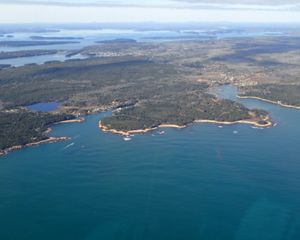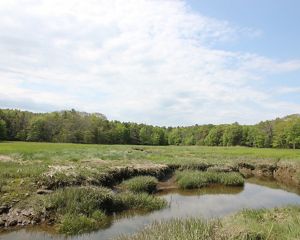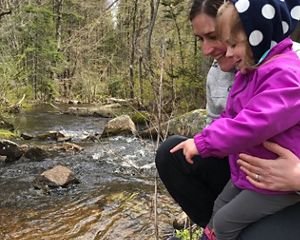Media Contacts
-
Jeremy Cluchey
The Nature Conservancy
Phone: 207-607-4843
Email: jeremy.cluchey@tnc.org -
David Madore
Maine Department of Environmental Protection
Phone: 207-287-5842
Email: david.madore@maine.gov -
Tim Dugan
New England District Corps of Engineers
Phone: 978-318-8264
Email: timothy.j.dugan@usace.army.mil
The Maine Natural Resource Conservation Program (MNRCP) awarded more than $6.3 million for 11 projects across Maine that will restore, enhance or protect wetlands and other important natural resources, the Maine Department of Environmental Protection (Maine DEP) announced today.
The projects awarded funding include removal of a road through a salt marsh in Cape Elizabeth and Scarborough; freshwater wetland restoration and creation at a conservation property in Jefferson; five salt marsh enhancement projects along the coast from Saco to Mount Desert; removal of a dam to restore tidal marsh in Trenton; and conservation of high-value freshwater wetlands at sites in Bremen and New Portland. In total, $6,381,799 was awarded to restore or enhance more than 440 acres of wetlands and help conserve approximately 655 acres of wetlands and associated upland buffer.
“The grant from MNRCP will provide significant project support and bolster our ability to restore wetlands within a 500-acre parcel of land to an area of high conservation value in the interior midcoast region," said Midcoast Conservancy Director of Land Conservation and Ecology Chris Schorn. "Working with an environmental consultant, this funding will be used to regrade two historic gravel pits and remove a road that bisects an important existing wetland, thereby creating areas for wildlife habitat, increased floodwater capacity and a nutrient source for local fauna and flora.”
Erin Witham, land protection manager at Frenchman Bay Conservancy, shared that “MNCRP funding allows Frenchman Bay Conservancy to restore 11 acres of significantly altered coastal wetlands along the longest stretch of undeveloped shoreline in Trenton. Their support makes it possible for us to achieve our goal of protecting high-value wading bird and waterfowl habitat while also investing in climate resilience by providing the space to accommodate future marsh migration resulting from sea-level rise.”
MNRCP is one of the most important funding sources for wetland restoration and conservation projects in the state. Since it began in 2008, the program has awarded more than $33 million for 174 restoration and conservation projects. Public agencies, municipalities, Tribes and non-profit conservation organizations are all eligible to apply for funding.
MNRCP is part of the state’s In Lieu Fee Compensation Program, whereby developers who are seeking permits for environmental impacts can pay a fee to compensate for those impacts. The fees are assessed by the Maine DEP and the U.S. Army Corps of Engineers (Army Corps) during the permitting process and are pooled in a dedicated fund. MNRCP holds an annual grant cycle and awards funds for wetland restoration, enhancement or preservation projects that serve as compensation for the development impacts. Preference is given to projects that actively restore or enhance damaged wetlands.
The next round of applications for MNRCP funding will begin in June 2024. MNRCP will be seeking wetland restoration and enhancement projects that actively restore or enhance damaged wetlands while also addressing state conservation planning goals. Projects may include removal of fill material from wetlands or removal of man-made tidal or stream barriers. Land conservation projects that can accommodate tidal marsh migration from sea-level rise or that protect important wildlife habitats, such as vernal pools and waterfowl and wading bird habitat, will also be considered.
MNRCP is administered by The Nature Conservancy in Maine, working in close collaboration with Maine DEP and the Army Corps. For more information about MNRCP, visit http://mnrcp.org/.
The Nature Conservancy is a global conservation organization dedicated to conserving the lands and waters on which all life depends. Guided by science, we create innovative, on-the-ground solutions to our world’s toughest challenges so that nature and people can thrive together. We are tackling climate change, conserving lands, waters and oceans at an unprecedented scale, providing food and water sustainably and helping make cities more resilient. The Nature Conservancy is working to make a lasting difference around the world in 81 countries and territories (40 by direct conservation impact and 41 through partners) through a collaborative approach that engages local communities, governments, the private sector, and other partners. To learn more, visit nature.org or follow @nature_press on X.



